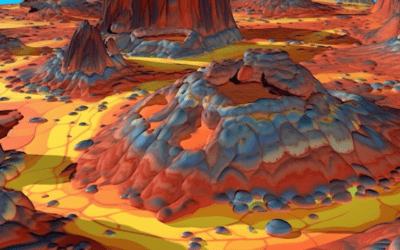Will Humans Ever Live on Another Planet?
Have you ever wondered if humans will ever live on another planet? It’s an exciting question that scientists and space enthusiasts have been exploring for decades. Let’s dive into the topic and find out what the future might hold for us.
Exploring the Possibilities
Scientists believe that it is indeed possible for humans to live on another planet one day. The universe is vast, with billions of stars and planets, so there’s a good chance that some of them could sustain human life.
Space Exploration: Over the years, we have made significant progress in space exploration. We’ve sent astronauts to the Moon, developed space stations like the International Space Station (ISS), and even sent robotic missions to other planets like Mars. These missions have provided us with valuable knowledge about the conditions on other celestial bodies and have brought us closer to the possibility of humans living on another planet.
The Search for a Habitable Planet
For humans to live on another planet, we need to find one that can support life as we know it. Scientists are constantly searching for planets that meet certain criteria, such as being in the habitable zone of a star.
Habitable Zone: The habitable zone is the region around a star where conditions may be just right for liquid water to exist on the planet’s surface. Since water is essential for life as we know it, finding planets within the habitable zone increases the chances of finding one suitable for human habitation.
Scientists use powerful telescopes, such as the Kepler Space Telescope, to search for exoplanets (planets outside our solar system) that might be in the habitable zone of their star. So far, they have discovered thousands of exoplanets, some of which could potentially be habitable.
Challenges to Overcome
While the idea of humans living on another planet is enticing, we must also acknowledge the significant challenges that need to be addressed.
- Distance and Travel: Planets outside our solar system are incredibly far away. Even the closest star to us, Proxima Centauri, is over four light-years away. Traveling such vast distances would require advanced spacecraft and technology we have yet to develop.
- Harsh Environments: Most planets in our solar system have extreme environments that would be challenging for humans to survive in. For example, Mars, often considered a potential candidate for human colonization, has a thin atmosphere, extreme cold, and no readily available resources.
- Adapting to New Environments: Living on another planet would require humans to adapt to an environment very different from Earth. We would need to find ways to grow food, generate energy, and protect ourselves from harmful radiation.
The Future of Human Space Exploration
Despite the challenges, scientists and engineers are working hard to overcome these obstacles. Space agencies like NASA and private companies like SpaceX are investing in research and development to enable human space exploration and potentially living on other planets.
SpaceX: SpaceX, founded by Elon Musk, is actively working on developing advanced rockets, like the Starship, that could one day transport humans to Mars. Their goal is to establish a self-sustaining colony on the red planet within the next few decades.
So, while living on another planet may not be a reality in the near future, the progress being made suggests that it’s a real possibility in the long run. Our understanding of the universe is expanding, and with continued advancements in technology, exploration, and scientific research, we may one day call another planet home.
In Conclusion
The question “will humans ever live on another planet?” is an exciting one that sparks our curiosity and imagination. While there are challenges to overcome, scientists are actively working towards making this dream a reality. So, as we continue to explore, study, and push the boundaries of what we know, who knows what possibilities await us in the vastness of space?












